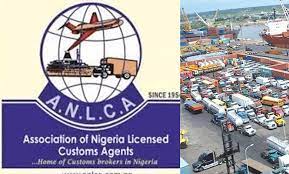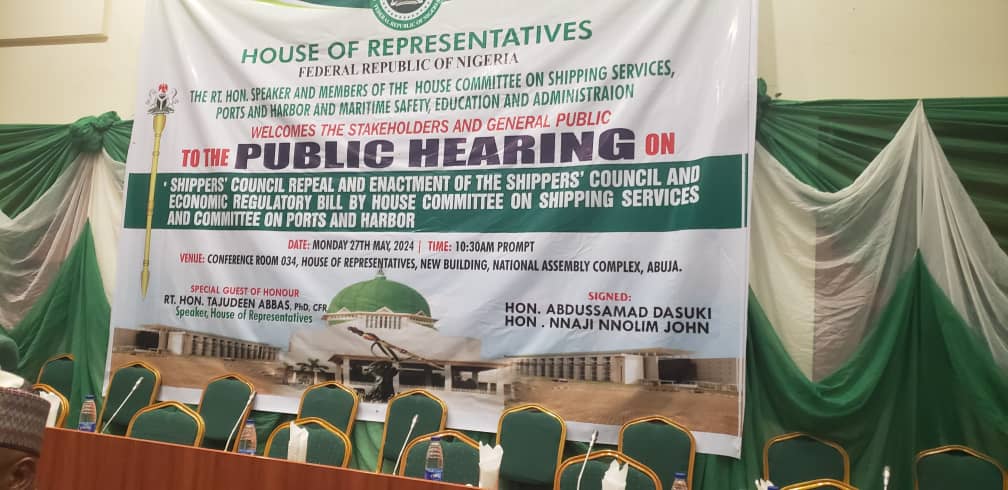Analysis
‘FG Has Lost Control of Our Land Borders’- Nweke Raises Alarm

… Warns On Possible Loss of Regional Port Hub Status
BY EGUONO ODJEGBA
Maritime analyst, researcher and port activist, Dr. Eugene Nweke has raised alarm over the loss of control of Nigeria’s border to smugglers due to the state of infrastructural disrepair and lack of effective surveillance system along the nation’s trans border axis.
Nweke who is the Head of the Research @ Sea Empowerment Center RTG dropped the hint in a paper presentation titled “ A REVIEWED CONTRIBUTION ON THE IMPLICATIONS OF LOOSING CARGOS TO NEIGHBORING COUNTRIES DUE TO POOR INFRASTRUCTURE, HIGH SHIP AND PORT HANDLING CHARGES” released by the RTG on Tuesday, November 19, 2024.
Nweke also drew the attention of the federal government and ports trading community to threats posed by the losses of importations meant for Nigeria to neighbouring countries.
In a reviewed study of the patterns of the nation’s import cargo traffic flow, he identified a defective and inadequate infrastructural system, made worse by capacity gap and neglect, and posits that such level of lack and negligence usually puts pressure on government spending to protect lives due to security exigencies created by trafficking of contraband goods to Nigeria.
Nweke opined that contraband cargo more often than not finds their way into the country via unapproved routes from receiver neigbouring state; and hence serves as buffer zones for prohibited imports.
This is even as the former President of National Association of Government Approved Freight Forwarders (NAGAFF) tasked the federal government to create appropriate and competitive trade policies and strengthen infrastructure that supports trans border movement of goods and people to make room for the sustainability of Nigeria’s port hub status, which he warned is presently losing relevance to the better developed and responsive trade policies of neigbhouring states like Benin Republic, Ghana, Togo and other emerging sub regional economic giants.
The RTG latest review work also knocked the leadership of the Ministry of Finance and the Central Bank of Nigeria for their inability to adequately identify the crux of the nation’s consistent macroeconomic shocks and poor performances as a means to reinventing the national economy.
He expressed disappointment that the finance ministry and the apex bank are unconcerned about the long tenor of trade imbalance and the need to refocus critical economic variables to support improved production which will help tp push up Nigeria’s gross domestic product.
Explaining the consequences of the loss of cargo, he said, “Findings shows that, cargo lose to neighboring countries constitutes fraction to the rising incidences of inflation and exchange rate woes/pressure in the land due to unaccountable revenue from smuggled goods into the country through unapproved borders.
“This is because, the foreign exchange funding of these trade or imports originated from the Nigeria commercial banks. Also, cargo lose to neighboring countries puts pressure on the government to prioritize public spending to protect human life (usually endangered, courtesy of rerouting of contrabands and dangerous imports via the unapproved borders into the country), increasing the rise in fiscal deficit and to an extent constituting an impediment to preserving economic growth potential.”
Advancing solutions, the cerebral freight forwarder outlined some suggestions, including advising government on the need to explore other possibilities in reassessing major policy thrusts with wider national impact; plus taking a second look at the demand for review of some of our fiscal instruments and also prevail on the cabinet to embrace financial discipline.

“Therefore, the need to maintain some fiscal discipline cannot be overemphasized. In this regards, the need for the central bank to stabilize macroeconomic and financial developments through effective monetary and exchange rate policies, is apt.
“In addition, appropriate policy concerns will help in containing inflation and exchange rate volatility.”
On the state of the nation’s land borders, Nweke said: “Equally, findings shows that, the government do not have full control of all entry points within the borders and security remains elusive, most often policy priorities are usually difficult to implement in the face of socio political fragility, where policy makers are usually caught between multiple and often competing objectives.
“Notably, cargo losses to neighboring countries contribute an infraction to the economic pressures such as low investment, this is because, the associated trade in services is diverted to neighboring countries.
“Let me begin by noting that, the loss of cargoes to neighboring countries due to poor infrastructure and high shipping and port handling charges has severe implications for Nigeria.
“Unfortunately, this development has gone beyond an emerging development and now progressed to a seeming threat to the development of the nation’s shipping transportation system.
“Gradually, this implication is having dwindling effects on the nation’s Balance of Trade and Gross Domestic Product (GDP)”, he said.
According to him, the implications which are obvious and detrimental to the nation’s trade balance and economic wellbeing should be tackled holistically and not to be cherry picked if Nigeria is serious and sincere about refloating the economy, which he says has already been knocked down severely by weak and unproductive strategies.
He listed the implications in losing domestic cargo flow to neighbouring countries to include economic, social, infrastructural, security, competition, and government revenue which he benchmarked under the following subheads.
- Economic Implications
- Reduced Revenue: Loss of cargoes means reduced revenue for the government, ports, and related businesses.
- Decreased Economic Growth: Lower cargo volumes hinder economic growth, development, and job creation.
- Increased Unemployment: Reduced economic activity leads to job losses in the maritime, logistics, and related sectors.
- Decreased Foreign Exchange Earnings: Reduced cargo volumes result in lower foreign exchange earnings.
- Social Implications:
- Increased Poverty: Reduced economic activity exacerbates poverty and inequality.
- Decreased Standard of Living: Lower economic growth affects the standard of living, healthcare, education, and infrastructure development.
- Increased Migration: Unemployment and poverty drive migration to other countries.
- Infrastructure Implications:
- Underutilized Infrastructure: Poor infrastructure and low cargo volumes lead to underutilized ports, roads, and railways.
- Maintenance and Upgrade Challenges: Reduced revenue hinders maintenance and upgrade of existing infrastructure.
- Limited Investment: Poor infrastructure discourages investment in the maritime and logistics sectors.
- Security Implications:
- Increased Smuggling: Poor infrastructure and high costs encourage smuggling, undermining national security.
- Border Insecurity: Weak border control and smuggling activities compromise national security.
- Piracy and Crime: Reduced economic activity and poor infrastructure create opportunities for piracy and crime.
- Competitiveness Implications:
- Loss of Competitive Advantage: Nigeria’s poor infrastructure and high costs erode its competitive advantage.
- Regional Hub Status: Nigeria risks losing its status as a regional trade hub.
- Reduced Investment Attraction: Poor infrastructure and high costs deter investors.
- Government Revenue Implications:
- Reduced Customs Revenue: Lower cargo volumes result in reduced customs revenue.
- Decreased VAT and Tax Revenue: Reduced economic activity leads to lower VAT and tax revenue.
- Increased Dependence on Oil Revenue: Reduced non-oil revenue increases dependence on oil revenue.
To tackle the challenges, Nweke tasked the federal government on the following:
- Invest in infrastructure development (ports, roads, railways).
- Implement reforms to reduce shipping and port handling charges.
- Enhance efficiency and transparency in port operations.
- Promote public-private partnerships (PPPs) in infrastructure development.
- Develop incentives for exporters and importers.
- Strengthen border security and smuggling prevention.
- Improve trade facilitation and customs processes.
- Diversify the economy to reduce dependence on oil revenue.
He opined further that “By addressing these issues, Nigeria can regain its competitive advantage, attract more cargoes, and stimulate economic growth. I do hope this report/response serves as veritable suggestions in addressing these issues.
“However, these peculiar issues have lingered and is deserving of urgent attention.”


































